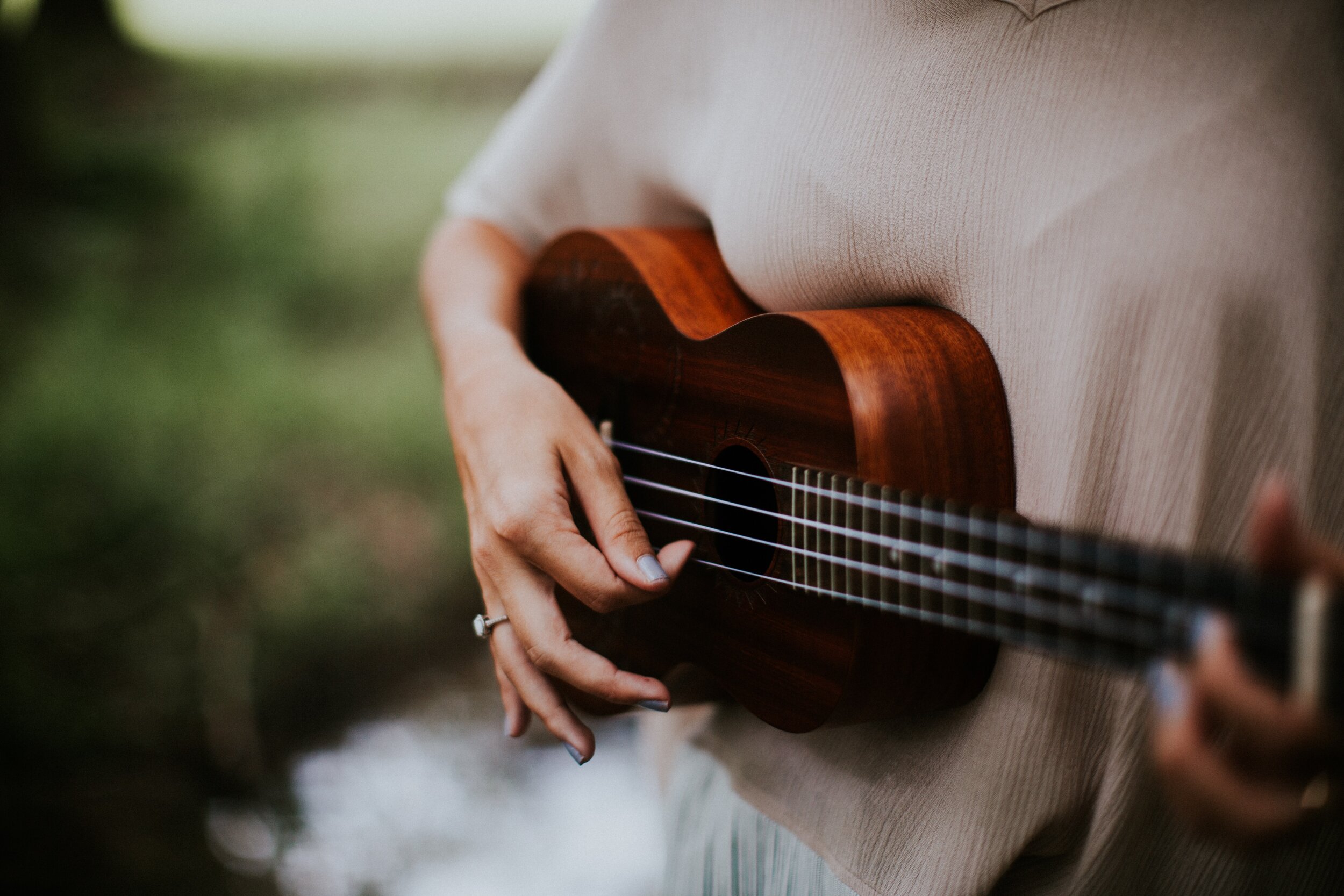Everybody Should Have and Play A Uke
WRITTEN BY:
Samuel Harris
READ TIME:
5 mins
I hope that in this season of Eastertide your heart is joyful and that you are “mak[ing] this day a living hymn of praise” as the Divine Office’s intercessions for Easter Sunday have it. Around the diocese our parishes celebrated, each in their own way, the great Easter liturgies with an embrace of what Pope Benedict XVI called the “right way to give the faith its central form of expression in the liturgy”: a reverent and focused use of music to effect a “lifting up of the human heart” to the “mystery of infinite beauty”.
In this arts and culture section we want to include some conversation about music both sacred and secular, and to kick it off let’s look at one of music’s humblest but happiest expressions of joy: the sound of the ukulele.
The cheerful jangle of the ukulele makes an appearance on many contemporary pop tunes. Vance Joy’s hit Riptide and Jason Mraz’s I’m Yours get the foot tapping with their opening chords — that chunky strum, clean and simple. On her song You and I, Ingrid Michaelson sings, “Don’t you worry there my honey/We might not have any money /But we’ve got our love to pay the bills” over a sweet ukulele line.
The ukulele is ubiquitous on video-sharing site YouTube, appearing in hundreds of clips of cover versions of hits past and present. In this happy stamping ground of the amateur, the uke shows off its nature as an instrument that is affordable and accessible to all — just as joy is.
Singer Julia Nunes’s mash-up of Justin Bieber’s Baby and the Supremes’ Where Did Our Love Go? and her Build Me Up Buttercup are delights from start to finish. Have a look at a duo going by the name of Honoka & Azita playing a Beach Boys medley, blissful smiles on their faces; a deceptively simple version of I Fought The Law by a venerable bluesman named James Clem; actors Zooey Deschanel and Joseph Gordon-Levitt crooning a sweet and funny love song.
But joy is a thing that is found not just in dancing and laughter but also quieter, in the midst of sadness or suffering: the joy of hope and trust while hurting, of the recognition of the often-difficult experience of being human. “Sad songs can ring extra poignant on a uke because it has an innocence and clarity that can hit you right in the heart,” says Nunes.
See cult band Twenty One Pilots’s singer Tyler Joseph taking Elvis’s Can’t Help Falling in Love and a ukulele and upping the tune’s poignancy into something that celebrates love while suggesting the hard work of caritas. Hawaiian singer Israel Kamakawiwo’ole came to prominence outside his homeland in 1993 with the release of a beautiful medley of Over the Rainbow and Wonderful World (go now and look it up and then come back to this), his voice a mix of strength and tenderness and plaintive longing: “Someday I’ll . . . wake up where the clouds are far behind me/ Where trouble melts like lemon drops /. . . What a wonderful world.”
Virtuoso Jake Shimabukuro shows that the ukulele can be a site of joyful musicianship for the expert player as well as the novice. His version of the Beatles’ While My Guitar Gently Weeps is something stunning. Much joy can be found in the Ukulele Orchestra of Great Britain’s similarly skilful versions of classic pop and rock songs, among them Rock Around the Clock and 500 Miles, and their renderings of classical pieces like Beethoven’s Ode to Joy. Also plinking out the joy is Hamilton’s own Big Muffin Serious Band. If you listen to just one song (or watch one video) of theirs, let it be their glorious version of the Country Calendar theme song; if you want more listen to their take on rocker Eddie Vedder’s Tonight You Belong To Me — and then listen to the original from Vedder’s quirky Ukulele Songs, a duet with Cat Power in another poignant love song.
“You can’t possibly be angry while you’re strumming the ukulele,” reckons Shimabukuro. “There’s something magical about the instrument that makes people smile and brings people together.” Documentary maker Bill Robertson says, “It’s about the size of a human infant. When you hold it to play, you hold it up close and you’re cradling it to your heart…[It] conveys a certain innocence.”
Childlike innocence, joy, an antidote to anger: what more could you want in an instrument?
Writing this article inspired this writer to lift down his ukulele from the cupboard where it languished and dig out another battered ukulele from the garage. That one made its way into my pre-school daughters’ hands where - you guessed it - it began to work its joyful magic. The house rang with many energetically strummed versions of Twinkle Twinkle, and as soon as I can find time to get to the music shop my long-unloved uke will be restrung and chords re-learned. In this I’ll be following ukulele player and Beatle George Harrison’s dictum, “Everybody should have and play a uke,” and, pursuing creative endeavours, I’ll be hoping, to paraphrase the psalmist, that my heart will leap with joy and through my beginner’s strum I’ll praise the Lord.
A version of this article was originally published in New Zealand Catholic.



